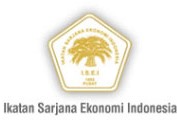Decision Making and Patronage Behaviour in Islamic Co-operatives in Aceh, Indonesia
(1) Faculty of Economics and Business, Syiah Kuala University
(2) Universitas Syiah Kuala
(3) Universitas Syiah Kuala
(4) Universitas Syiah Kuala
Abstract
Although the number of Islamic co-operatives' memberships only amounted to 2.51 million people (11.19%) to the total membership of co-operatives in Indonesia nationwide, but it has shown a rising trend in its membership by 76.11% over the last decade (Ministry of Co-Operatives & SMEs, 2019). These figures raise an essential research question: what drives the decision of Indonesian citizens to patronage Islamic co-operatives? Specifically, this study explores pertinent determinants of decision-making made by the members to select Islamic co-operatives in Aceh, Indonesia. A number of 280 members and non-members of Islamic co-operatives were selected as the sample of the study using a purposive sampling technique. Based on the logistic multiple regression technique, the study recorded that the members' decision-making in selecting Islamic co-operatives was mainly determined by their shari'ah compliance and characteristics' uniqueness. Meanwhile, physical facilities and services quality provided by the Islamic co-operatives have insignificant effects on the people's decision-making to become the memberships of Islamic co-operatives. This empirical evidence suggested that to attract more memberships, the Islamic co-operatives should improve their shari'ah compliance and characteristics' uniqueness.
Keywords
Full Text:
PDFReferences
Abdelghani, E. & Oladokun, N. (2012). Malaysian consumers’ preferences for Islamic banking attributes. International Journal of Social Economics, 39(11), 859–874.
Ahmad, M. R. & Al-Aidaros, A. H. (2015). The need of independent shariah members in Islamic co-operative banks: an empirical study of professional accountants in Malaysia. International Review of Management and Business Research, 4(1), 110-125.
Al-Ajmi, J., Hussain, H., & Al-Saleh, N. (2009) ‘Clients of conventional and Islamic banks in Bahrain, how they choose which bank to patronize’, International Journal of Social Economics, 36(11), 1086–112.
Bond, J. K. (2009). Co-operative financial performance and board of director characteristics: A quantitative investigation. Journal of Cooperatives, 22(1), 1–25.
Hair, et al. (2010). Multivariate Data Analysis. Englewood Cliffs: Prentice-Hall.
Hasan, I., Azhari, A., & Majid, M. S. (2018). How efficient and productive are co-operatives in Indonesia? Empirical evidence from data envelopment analysis. Revesco-Revista De Estudios Cooperativos, 128, 149–172.
Hassan, M., Khan, M., & Shahid, A. (2007). Banking behaviour of Islamic bank customers in Bangladesh. Journal of Islamic Economics, Banking and Finance, 3(2), 160-194.
International Co-operative Alliance (2017). International Co-operative Alliances’, in The 6th Annual World Co-operative Monitor: International Co-operative Alliance’s 2017 Global Conference and General Assembly. Kuala Lumpur.
Itam, M. I., Hasan, R. B., & Alhabshi, S. M. (2016). Shariah governance framework for Islamic co-operatives as an integral social institution in Malaysia. Intellectual Discourse, 24, 477–500.
Lateh, N., Ismail, S., & Ariffin, N. M. (2009). Customers’ perceptions on the objectives, characteristics and selection criteria of Islamic bank in Thailand’, Gadjah Mada International Journal of Business, 11(2), 167-189.
Majid, et al. (2020a). Do Capital and Business Volume Matter for Productivity of the Cooperatives in Indonesia?. Binus Business Review, 11(1), 1-8.
Majid, et al. (2020b). The Role of Co-Operatives in Labor Absorption in Indonesia. in Proceedings Aceh Global Conference-Business, Economics, and Sustainable Development Trends. Banda Aceh, Indonesia, 105–110.
Majid, M. S. A. & Hasin, Z. (2014). Islamic banks and monetary transmission mechanism in Malaysia. Journal of Economic Cooperation and Development, 35(2), 137-166.
Majid, M. S. A. & Kassim, S. H. (2015). Assessing the contribution of Islamic finance to economic growth: empirical evidence from Malaysia’, Journal of Islamic Accounting and Business Research, 6(2), 292–310.
Majid, M. S. A. & Zulhanizar, S. (2016). The Patronage Behaviour of Islamic Bank’s Customers: empirical studies in Aceh. Al-Iqtishad: Jurnal Ilmu Ekonomi Syariah, 8(2), 201–212.
Ministry of Co-Operatives & SMEs (2019). Annual Report. Jakarta: Kemenkop & UMKM.
Naser, K., Jamal, A., & Al‐Khatib, K. (1999). Islamic banking: a study of customer satisfaction and preferences in Jordan. International Journal of Bank Marketing, 17(3), 135–151.
Nasution, M. (2007) Co-operative Economic Democracy [Demokrasi Ekonomi Koperasi]. Jakarta: PIP Publishing.
Nupur, J. M. (2010). E-banking and customers' satisfaction in Bangladesh: An analysis, International Review of Business Research Papers, 6(4), 145-156.
Sakai, M. (2010). Growing together in partnership: Women’s views of the business practices of an Islamic Savings and Credit Cooperative (Baitul Maal wat Tamwil) in Central Java, Indonesia. in In Women’s Studies International Forum. Pergamon., 412–421.
Seibel, H. D. (2007) Islamic Microfinance: The Challenge of Institutional Diversity. 5.
Vamstad, J. (2012). Co-production and service quality: The case of co-operative childcare in Sweden. Voluntas: International Journal of Voluntary and Nonprofit Organizations, 23(4), 1173-1188.
Walid, et al. (2010). Islamic banking and customers’ preferences: the case of the UK. Qualitative Research in Financial Markets, 2(3), 185 – 199.
Refbacks
- There are currently no refbacks.

This work is licensed under a Creative Commons Attribution 4.0 International License.







